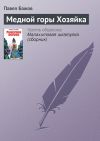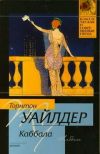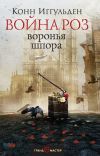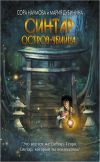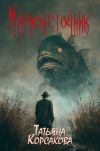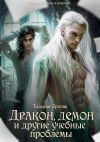Текст книги "Сказки / Fairy Tales"
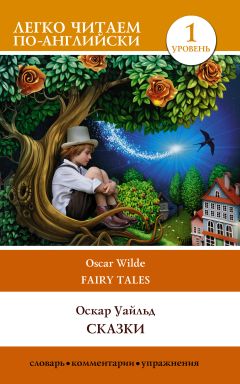
Автор книги: Оскар Уайльд
Жанр: Иностранные языки, Наука и Образование
Возрастные ограничения: +12
сообщить о неприемлемом содержимом
Текущая страница: 2 (всего у книги 8 страниц) [доступный отрывок для чтения: 2 страниц]
The Happy Prince
The statue of the Happy Prince stood on a tall column, above the city. He was gilded all over with thin leaves of gold. He had two bright sapphires for eyes. A large red ruby glowed on his sword-hilt[18]18
sword-hilt – рукоять шпаги
[Закрыть]. The people admired him.
“He is as beautiful as a weathercock,” remarked one of the Town Councillors; “only not quite so useful,” he added. He was afraid to look unpractical, which he really was not.
“Why can’t you be like the Happy Prince?” asked a sensible mother of her little boy who cried all day. “The Happy Prince never cries for anything.”
“I am glad there is someone in the world who is quite happy,” muttered a disappointed man as he gazed at the wonderful statue.
“He looks just like an angel,” said the Charity Children[19]19
Charity Children – приютские дети
[Закрыть] when they came out of the cathedral in their bright scarlet cloaks and their clean white pinafores.
“How do you know?” said the Mathematical Master, “did you ever see one?”
“Ah! We did, in our dreams,” answered the children.
The Mathematical Master frowned and looked very severe.
One night a little Swallow flew over the city. His friends flew away to Egypt six weeks ago, but he stayed, because he was in love with the most beautiful Reed. He met her early in the spring as he flew down the river after a big yellow moth. He was so attracted by her slender waist that he stopped to talk to her.
“Shall I love you?” said the Swallow, who liked to come to the point at once.
The Reed made him a low bow. So he flew round and round her, touched the water with his wings, and made silver ripples. This was his courtship, and it lasted all through the summer.
“It is a ridiculous attachment,” twittered the other Swallows; “she has no money, and too many relations”.
Indeed the river was full of Reeds. Then, when the autumn came the birds all flew away.
After that he felt lonely, and began to tire of his lover.
“She can’t speak,” he said, “and I am afraid that she is a coquette, because she like to flirt with the wind.”
And certainly, whenever the wind blew, the Reed made the most graceful curtseys.
“I admit that she is domestic,” he continued, “but I like to travel, and my wife, consequently, must like to travel also.”
“Will you come away with me?” he said finally to her; but the Reed shook her head. She was attached to her home.
“You trifle with me,” he cried. “I will fly to the Pyramids. Good-bye!” and he flew away.
All day long he flew, and at night-time he arrived at the city.
“This is the place to rest,” he said; “I hope the town is good for me.”
Then he saw the statue on the tall column.
“I will stay there,” he cried; “it is a fine position, with plenty of fresh air.”
So he alighted just between the feet of the Happy Prince.
“I have a golden bedroom,” he said softly to himself as he looked round, and he prepared to go to sleep. But just as he put his head under his wing a large drop of water fell on him.
“What a curious thing!” he cried; “there is not a single cloud in the sky, the stars are quite clear and bright, and yet it rains. The climate in the north of Europe is really dreadful. The Reed liked the rain, but that was merely her selfishness.”
Then another drop fell.
“What is the use of a statue if it cannot keep the rain off[20]20
cannot keep the rain off – не может защитить от дождя
[Закрыть]?” he said; “I must look for a good chimney-pot[21]21
chimney-pot – дымоход
[Закрыть],” and he determined to fly away.
But before he opened his wings, a third drop fell, and he looked up, and saw – Ah! what did he see?
The eyes of the Happy Prince were filled with tears, and tears ran down his golden cheeks. His face was so beautiful in the moonlight that the little Swallow was filled with pity.
“Who are you?” he said.
“I am the Happy Prince.”
“Why do you weep then?” asked the Swallow; “you drench me.”
“When I was alive and had a human heart,” answered the statue, “I did not know what tears were. I lived in the Palace of Sans-Souci, where sorrow is not allowed to enter. In the daytime I played with my companions in the garden. In the evening I led the dance in the Great Hall. There was a high wall round the garden, but I never asked what lay beyond it. Everything about me was so beautiful. My courtiers called me the Happy Prince, and happy indeed I was, if pleasure is happiness. So I lived, and so I died. And now I am dead. They set me up here. I can see all the ugliness and all the misery of my city. Though my heart is made of lead yet I weep.”
“What! is he not solid gold?” said the Swallow to himself. He was too polite to make any personal remarks aloud.
“Far away,” continued the statue in a low musical voice, “far away in a little street there is a poor house. One of the windows is open, and through it I can see a woman at a table. Her face is thin and worn. She has coarse, red hands, all pricked by the needle. She is a seamstress. She embroiders passion-flowers[22]22
passion-flowers – цветы любви
[Закрыть] on a satin gown for the loveliest of the Queen’s maids-of-honour[23]23
maid-of-honour – фрейлина
[Закрыть] to wear at the next Court-ball. Her little boy is ill. He lies in a bed in the corner of the room. He has a fever, and he asks for oranges. His mother has nothing to give him but river water. He cried. Swallow, Swallow, little Swallow, will you not bring her the ruby out of my sword-hilt? My feet are fastened to this pedestal and I cannot move.”
“My friends wait for me in Egypt,” said the Swallow. “They fly up and down the Nile, and talk to the large lotus-flowers. Soon they will go to sleep in the tomb of the great King. The King is in his painted coffin. He is wrapped in yellow linen, and embalmed with spices. Round his neck is a chain of pale green jade, and his hands are like withered leaves.”
“Swallow, Swallow, little Swallow,” said the Prince, “will you not stay with me for one night, and be my messenger? The boy is so thirsty, and the mother so sad.”
“I don’t think I like boys,” answered the Swallow. “Last summer, when I stayed on the river, there were two rude boys, the miller’s sons. They always threw stones at me. They never hit me, of course; we swallows fly well. But still, it was a mark of disrespect.”
But the Happy Prince looked so sad that the little Swallow was sorry.
“It is very cold here,” he said; “but I will stay with you for one night, and be your messenger.”
“Thank you, little Swallow,” said the Prince.
So the Swallow picked out the great ruby from the Prince’s sword, and flew away with it in his beak over the roofs of the town.
He passed by the cathedral tower with the white marble angels. He passed by the palace and heard the sound of music. A beautiful girl came out on the balcony with her lover.
“How wonderful the stars are,” he said to her, “and how wonderful is the power of love!”
“I hope my dress will be ready in time for the State-ball,” she answered; “I ordered passion-flowers to be embroidered on it; but the seamstresses are very lazy.”
He passed over the river, and saw the lanterns on the masts of the ships. He passed over the Ghetto, and saw the old Jews. They weighed out money in copper scales. At last he came to the poor house and looked in. The boy tossed feverishly on his bed, and the mother was asleep. She was very tired. He flew in and laid the great ruby on the table beside the woman’s thimble. Then he flew gently round the bed and fanned the boy’s forehead with his wings.
“How cool I feel,” said the boy, “I get better”; and he sank into a delicious slumber.
Then the Swallow flew back to the Happy Prince, and told him everything.
“It is curious,” he remarked, “but I feel quite warm now, although it is so cold.”
“That is because you did something good,” said the Prince.
And the little Swallow began to think, and then he fell asleep.
When day broke he flew down to the river and had a bath.
“What a remarkable phenomenon,” said the Professor of Ornithology from the bridge. “A swallow in winter!”
And he wrote a long letter about it to the local newspaper. Everyone quoted it, it was full of words that nobody understood.
“Tonight I go to Egypt,” said the Swallow.
He visited all the public monuments, and sat a long time on top of the church steeple. Wherever he went, the Sparrows chirruped, and said to each other, “What a mysterious stranger!”
When the moon rose he flew back to the Happy Prince.
“Have you any commissions[24]24
have you any commissions – у тебя есть какие-нибудь поручения
[Закрыть] for Egypt?” he cried; “I will fly away soon.”
“Swallow, Swallow, little Swallow,” said the Prince, “will you not stay with me one night longer?”
“My fiends wait for me in Egypt,” answered the Swallow. “Tomorrow they will fly up to the Second Cataract. The river-horse couches there among the bulrushes, and on a great granite throne sits the God Memnon. All night long he watches the stars. When the morning star shines he utters one cry of joy, and then he is silent. At noon the yellow lions come down to the water’s edge to drink. They have eyes like green beryls. Their roar is louder than the roar of the cataract.”
“Swallow, Swallow, little Swallow,” said the Prince, “far away across the city I see a young man in a garret. He is at the desk covered with papers. In a tumbler by his side there is a bunch of withered violets. His hair is brown and crisp. His lips are red as a pomegranate. He has large and dreamy eyes. He wants to finish a play for the Director of the Theatre, but he is too cold to write anymore. There is no fire in the grate, and he is very hungry.”
“I will wait with you one night longer,” said the Swallow, who really had a good heart. “Shall I take him another ruby?”
“Alas! I have no ruby now,” said the Prince; “my eyes are all that I have. They are made of rare sapphires from India. Pluck out one of them and take it to him. He will sell it to the jeweller, and buy food and firewood, and finish his play.”
“Dear Prince,” said the Swallow, “I cannot do that”; and he began to weep.
“Swallow, Swallow, little Swallow,” said the Prince, “do as I command you.”
So the Swallow plucked out the Prince’s eye, and flew away to the student’s garret. It was easy enough to get in, as there was a hole in the roof. Through this he darted, and came into the room. The young man buried his head in his hands, and did not hear the flutter of the bird’s wings. When he looked up he found the beautiful sapphire on the withered violets.
“This is from my reader,” he cried; “this is from some great admirer! Now I can finish my play,” and he looked quite happy.
The next day the Swallow flew down to the harbour. He sat on the mast of a large vessel. He watched the sailors with big chests and ropes. They shouted each time the chest came up.
“I will go to Egypt!” cried the Swallow, but nobody minded. When the moon rose he flew back to the Happy Prince.
“I am here to say good-bye,” he cried.
“Swallow, Swallow, little Swallow,” said the Prince, “will you not stay with me one night longer?”
“It is winter,” answered the Swallow, “and the chill snow will soon be here. In Egypt the sun is warm on the green palm-trees. The crocodiles lie in the mud and look lazily about them. My companions build a nest in the Temple of Baalbec. The pink and white doves watch them. Dear Prince, I must leave you, but I will never forget you. Next spring I will bring you back two beautiful jewels. The ruby will be redder than a red rose, and the sapphire will be as blue as the great sea.”
“In the square below,” said the Happy Prince, “there stands a little match-girl[25]25
match-girl – девочка, продающая спички
[Закрыть]. Her matches fell in the gutter, and they are all wet. Her father will beat her if she does not bring home some money. She has no shoes or stockings, and her little head is bare. Pluck out my other eye, and give it to her, and her father will not beat her.”
“I will stay with you one night longer,” said the Swallow, “but I cannot pluck out your eye. You will be quite blind then.”
“Swallow, Swallow, little Swallow,” said the Prince, “do as I command you.”
So he plucked out the Prince’s other eye, and darted down with it. He swooped past the match-girl, and slipped the jewel into the palm of her hand.
“What a lovely bit of glass,” cried the little girl; she laughed and ran home.
Then the Swallow came back to the Prince.
“You are blind now,” he said, “so I will stay with you.”
“No, little Swallow,” said the poor Prince, “you must go away to Egypt.”
“I will stay with you,” said the Swallow, and he slept at the Prince’s feet.
All the next day he sat on the Prince’s shoulder, and told him many interesting stories about strange lands. He told him of the red ibises, who stand in long rows on the banks of the Nile, and catch gold-fish in their beaks. He told him of the Sphinx, who is as old as the world itself, and lives in the desert, and knows everything. He told him of the merchants, who walk slowly by the side of their camels, and carry amber beads in their hands. He told him of the King of the Mountains of the Moon, who is as black as ebony, and worships a large crystal. He told him of the great green snake that sleeps in a palm-tree, and has twenty priests to feed it with honey-cakes. He told him of the pygmies who sail over a big lake on large flat leaves, and are always at war with the butterflies.
“Dear little Swallow,” said the Prince, “you tell me of marvelous things, but more marvellous than anything is the suffering of men and of women. There is no Mystery so great as Misery. Fly over my city, little Swallow, and tell me what you see there.”
So the Swallow flew over the great city, and saw the rich people. They were merry in their beautiful houses, while the beggars were at the gates. He flew into dark lanes, and saw the white faces of hungry children. Under the archway of a bridge two little boys were in one another’s arms to try and keep themselves warm.
“How hungry we are!” they said.
“You must not lie here,” shouted the Watchman, and they wandered out into the rain.
Then he flew back and told the Prince about this.
“I am covered with fine gold,” said the Prince, “you must take it off, leaf by leaf, and give it to my poor people. The people always think that gold can make them happy.”
Leaf after leaf of the fine gold the Swallow picked off, till the Happy Prince looked quite dull and grey. Leaf after leaf of the fine gold he brought to the poor. The children began to laugh and play games in the street.
“We have bread now!” they cried.
Then the snow came, and after the snow came the frost. The streets were bright and glistening. Long icicles like crystal daggers hung down from the eaves of the houses. Everybody was in furs, and the little boys wore scarlet caps and skated on the ice.
The poor little Swallow grew colder and colder, but he did not leave the Prince. He loved him. He picked up crumbs outside the baker’s door and tried to keep himself warm when he flapped his wings.
But at last he saw his death. He had just strength to fly up to the Prince’s shoulder once more. “Good-bye, dear Prince!” he murmured, “will you let me kiss your hand?”
“I am glad that you will go to Egypt at last, little Swallow,” said the Prince, “but you must kiss me on the lips, for I love you.”
“I will not go to,” said the Swallow. “I will go to the House of Death. Death is the brother of Sleep, right?”
And he kissed the Happy Prince on the lips, and fell down dead at his feet.
At that moment a curious crack sounded inside the statue. The leaden heart snapped right in two[26]26
snapped right in two – раскололось на две части
[Закрыть]. It certainly was a dreadfully hard frost.
Early the next morning the Mayor walked in the square in company with the Town Councillors. As they passed the column he looked up at the statue:
“Oh God! How shabby the Happy Prince looks!” he said.
“How shabby indeed!” cried the Town Councillors, who always agreed with the Mayor. They went up to look at it.
“The ruby fell out of his sword, his eyes are gone, and he is not golden anymore,” said the Mayor in fact, “he is little better than a beggar!”
“Little better than a beggar,” said the Town Councillors.
“And here is actually a dead bird at his feet!” continued the Mayor. “We must really issue a proclamation that birds are not to be allowed to die here.”
And the Town Clerk made a note of the suggestion.
So they pulled down the statue of the Happy Prince.
“As he is no longer beautiful he is no longer useful,” said the Art Professor at the University.
Then they melted the statue in a furnace. The Mayor held a meeting of the Corporation to decide what to do with the metal.
“We must have another statue, of course,” he said, “and it will be a statue of myself.”
“Of myself,” said each of the Town Councillors, and they quarrelled.
“What a strange thing!” said the worker at the foundry. “This broken lead heart does not melt in the furnace. We must throw it away.”
So they threw it on a dust-heap where the dead Swallow was.
“Bring me the two most precious things in the city,” said God to one of His Angels. The Angel brought Him the leaden heart and the dead bird.
“Good choice,” said God, “for in my garden of Paradise this little bird will sing for evermore, and in my city of gold the Happy Prince will praise me.”
The Devoted Friend
One morning the old Water-rat put his head out of his hole. He had bright beady eyes and stiff grey whiskers. His tail was like a long cord. The little ducks swam about in the pond. They looked like yellow canaries. Their mother was pure white with real red legs. She tried to teach them how to stand on their heads in the water.
“You will never be in the best society unless you can stand on your heads,” she said to them, and she showed them the movements. But the little ducks paid no attention to her[27]27
paid no attention to her – не обращали на неё внимания
[Закрыть]. They were very young and did not know an advantage to be in society at all.
“What disobedient children!” cried the old Water-rat; “they really deserve to be drowned.”
“No,” answered the Duck, “everyone was a pupil, and parents cannot be too patient.”
“Ah! I know nothing about the feelings of parents,” said the Water-rat; “I am not a family man. In fact, I was never married, and I never intend to be. Love is good, but friendship is much better. Indeed, I don’t know anything nobler or rarer than a devoted friendship.”
“And what is your idea of a devoted friend?” asked a Green Linnet. He sat in a willow-tree and overheard the conversation.
“Yes, that is just what I want to know,” said the Duck; and she swam away to the end of the pond, and stood upon her head. She wanted to give her children a good example.
“What a silly question!” cried the Water-rat. “My devoted friend must be devoted to me, of course.”
“And what will you do in return?” said the little bird.
“I don’t understand you,” answered the Water-rat.
“Let me tell you a story,” said the Linnet.
“Is the story about me?” asked the Water-rat. “If so, I will listen to it. I like fiction.”
“It is applicable to you,” answered the Linnet.
He flew down, and told the story of The Devoted Friend.
“Once upon a time,” said the Linnet, “there was an honest little fellow named Hans.”
“Was he famous?” asked the Water-rat.
“No,” answered the Linnet, “I don’t think he was famous at all, except for his kind heart, and his funny round good-humoured[28]28
good-humoured – добродушный
[Закрыть] face. He lived in a tiny cottage. Every day he worked in his garden. He had the best garden in all the country-side[29]29
country-side – округа
[Закрыть]. Sweet-William[30]30
Sweet-William – турецкая гвоздика
[Закрыть] grew there, and Gilly-flowers[31]31
Gilly-flowers – левкои
[Закрыть], and Shepherds’-purses[32]32
Shepherds’-purses – пастушьи сумки
[Закрыть], and Fair-maids of France[33]33
Fair-maids of France – лютики
[Закрыть]. There were damask Roses, and yellow Roses, lilac Crocuses, and gold, purple Violets and white. Columbine[34]34
Columbine – водосбор
[Закрыть] and Ladysmock[35]35
Ladysmock – сердечник луговой
[Закрыть], Marjoram and Wild Basil, the Cowslip and the Flower-de-luce[36]36
Flower-de-luce – ирис
[Закрыть], the Daffodil and the Clove-Pink[37]37
Clove-Pink – гвоздика садовая
[Закрыть] bloomed or blossomed in their proper order, one flower after another. There were always beautiful flowers and pleasant odours in his garden.
Little Hans had many friends, but the most devoted friend of all was big Hugh the Miller. Indeed, so devoted was the rich Miller to little Hans, that he always leant over the wall and plucked a large nosegay, or a handful of sweet herbs, or filled his pockets with plums and cherries.
‘Real friends must have everything in common,’ the Miller said, and little Hans nodded and smiled. He was very proud to have a friend with such noble ideas.
Sometimes, indeed, the neighbours thought it strange that the rich Miller never gave little Hans anything in return. Big Hugh had a hundred sacks of flour in his mill, and six cows, and many sheep. But Hans never troubled his head about these things. Nothing gave him greater pleasure than to listen to all the wonderful things the Miller said about the true friendship.
So little Hans worked hard in his garden. During the spring, the summer, and the autumn he was very happy. When the winter came, and he had no fruit or flowers to bring to the market, he suffered from cold and hunger. He often went to bed without any supper but a few dried pears or some hard nuts. In the winter, also, he was extremely lonely, as the Miller never came to see him then.
‘Why go to see little Hans in winter?’ the Miller said to his wife, ‘when people are in trouble they must be alone. Visitors must not bother them. That is my idea about friendship, and I am sure I am right. So I shall wait till the spring comes. Then I shall visit him, and he will be able to give me a large basket of primroses. That will make him happy.’
‘You are certainly very thoughtful about others,’ answered the Wife. She sat in her comfortable armchair by the big pinewood fire; ‘very thoughtful indeed. It is great pleasure to hear your words about friendship. I am sure the clergyman himself cannot say such beautiful things as you do, though he lives in a three-storied house, and wear a gold ring on his little finger.’
‘Shall we ask little Hans to come here?’ said the Miller’s youngest son. ‘If poor Hans is in trouble I will give him half my porridge, and show him my white rabbits.’
‘What a silly boy you are!’ cried the Miller; ‘I really don’t know why you go to school. You do not learn anything. If little Hans comes here, and sees our warm fire, and our good supper, and our great cask of red wine, he will be envious. Envy is the most terrible thing, it spoils anybody’s nature. I certainly will not spoil Hans’ nature. I am his best friend, and I will always watch over him – to drive out any temptations. Besides, if Hans comes here, he may ask me to give him some, and that I cannot do. Flour is one thing, and friendship is another, they must not be confused. You see, the words mean quite different things. Everybody can see that.’
‘How well you talk!’ said the Miller’s Wife, and poured herself out a large glass of warm ale; ‘really I feel quite drowsy. It is like in the church.’
‘Many people act well,’ answered the Miller; ‘but very few people talk well. It shows that the conversation is a very difficult thing’.
He looked sternly across the table at his little son, who was very ashamed of himself. He hung his head down, and grew scarlet, and began to cry into his tea. However, he was so young that you must excuse him.
“Is that the end of the story?” asked the Water-rat.
“Certainly not,” answered the Linnet, “that is the beginning.”
“Then you are quite behind the age[38]38
you are quite behind the age – вы совсем отстали от жизни
[Закрыть],” said the Water-rat. “Every good story-teller nowadays starts with the end, and then goes on to the beginning, and concludes with the middle. That is the new method. I heard all about it from a critic who walked round the pond with a young man. He spoke much, and I am sure he was right, because he had blue spectacles and a bald head. Whenever the young man made any remark, he always answered ‘Pooh!’ But go on with your story. I like the Miller immensely. There is a great sympathy between us.”
“Well,” said the Linnet, “as soon as the winter was over, and the primroses began to open their pale yellow stars, the Miller was ready to go down and see little Hans.
‘Why, what a good heart you have!’ cried his Wife; ‘you always think of others. And don’t forget the big basket for the flowers.’
So the Miller tied the sails of the windmill together with a strong iron chain, and went down the hill with the basket on his arm.
‘Good morning, little Hans,’ said the Miller.
‘Good morning,’ said Hans. He leant on his spade, and smiled from ear to ear.
‘How are you, my friend?’ asked the Miller.
“‘Well,’ cried Hans, ‘it is very good of you to ask, very good indeed. I had a hard time, but now it’s spring, and I am quite happy, and all my flowers are well.’
‘We often talked of you during the winter, Hans,’ said the Miller.
‘That was kind of you,’ said Hans; ‘I was afraid you forgot me.’
‘Hans, I am surprised at you,’ said the Miller; ‘friendship never forgets. That is the most wonderful thing in the world, but I am afraid you don’t understand the poetry of life. What lovely primroses!”
‘They are certainly very lovely,’ said Hans, ‘and it is a most lucky thing for me that I have so many. I will bring them into the market and sell them to the Burgomaster’s daughter. Then I will buy back my wheelbarrow with the money.’
‘Buy back your wheelbarrow? Did you sell it? What a very stupid thing to do!’
“‘Well, the fact is,’ said Hans, ‘that I was obliged to. You see the winter was a very bad time for me. I really had no money at all to buy bread. So I first sold the silver buttons off my Sunday coat. Then I sold my silver chain, and then I sold my big pipe. At last I sold my wheelbarrow. But I will buy them all back again now.’
‘Hans,’ said the Miller, ‘I will give you my wheelbarrow. It is not very good; indeed, one side is gone, and there is something wrong with the wheel-spokes. But in spite of that I will give it to you. I know it is very generous of me, and many people will think me extremely foolish for it, but I am not like the rest of the world. I think that generosity is the essence of friendship, and, besides, I have got a new wheelbarrow for myself. Yes, I will give you my wheelbarrow.’
‘Well, really, that is generous of you,’ said little Hans, and his funny round face glowed all over with pleasure. ‘I can easily repair it, as I have a plank of wood in the house.’
‘A plank of wood!’ said the Miller; ‘that is just what I want for the roof of my barn. There is a very large hole in it, and the corn will all get damp if I don’t stop it up. How lucky you mentioned it! It is quite remarkable how one good action always breeds another. I decided to give you my wheelbarrow, and now you give me your plank. Of course, the wheelbarrow is worth far more than the plank, but true, friendship never notices things like that.’
‘Certainly,’ cried little Hans, and he ran into the shed and dragged the plank out.
‘It is not a very big plank,’ said the Miller, ‘and I am afraid that after I mend my barn-roof there won’t be any left for you to mend the wheelbarrow with. Of course, that is not my fault. And now, as I gave you my wheelbarrow, I am sure you will give me some flowers in return. Here is the basket: fill it quite full.’
‘Quite full?’ said little Hans, rather sorrowfully, because it was really a very big basket. If he fills it he will have no flowers left for the market. He was very anxious to get his silver buttons back.
‘Well, really,’ answered the Miller, ‘as I gave you my wheelbarrow, I don’t think that it is much to ask you for a few flowers. I may be wrong, but I think that friendship, true friendship, is quite free from selfishness.’
‘My dear friend, my best friend,’ cried little Hans, ‘you are welcome to all the flowers in my garden. Your good opinion is more important than my silver buttons’.
And he ran and plucked all his pretty primroses, and filled the Miller’s basket.
‘Good-bye, little Hans,’ said the Miller, as he went up the hill with the plank on his shoulder, and the big basket in his hand.
‘Good-bye,’ said little Hans, and he began to dig away quite merrily, he was so pleased about the wheelbarrow.
The next day he heard the Miller’s voice which called him from the road. So he ran down the garden, and looked over the wall.
There was the Miller with a large sack of flour on his back.
‘Dear little Hans,’ said the Miller, ‘will you help me to carry this sack of flour to the market for me?’
‘Oh, I am so sorry,’ said Hans, ‘but I am really very busy today. I will nail up[39]39
nail up – закрепить
[Закрыть] my creepers, and water all my flowers, and roll my grass.’
‘Well, really,’ said the Miller, ‘I think that it is rather unfriendly of you to refuse. Don’t forget that I will give you my wheelbarrow.’
‘Oh, don’t say that,’ cried little Hans, ‘I won’t be unfriendly’; and he put the big sack on his shoulders.
It was a very hot day, and the road was terribly dusty. Hans was very tired. However, he went on bravely, and as last he reached the market. He sold the sack of flour for a very good price, and then he returned home at once.
‘It was a hard day,’ said little Hans to himself as he went to bed, ‘but I am glad I did not refuse the Miller. He is my best friend, and, besides, he will give me his wheelbarrow.’
Early the next morning the Miller came down to get the money for his sack of flour, but little Hans was so tired that he was still in bed.
‘Oh,’ said the Miller, ‘you are very lazy. Really, I think you can work harder. Remember that I will give you my wheelbarrow. Idleness is a great sin, and I certainly don’t like my friends to be idle or sluggish. What is the good of friendship if one cannot say exactly what one means? Anybody can say charming things and try to please and to flatter, but a true friend always says unpleasant things. Indeed, if he is a really true friend he prefers truth.’
‘I am very sorry,’ said little Hans. He rubbed his eyes and pulled off his night-cap, ‘but I was so tired that I wanted lie in bed for a little time, and listen to the birds. Do you know that I always work better after the birds songs?’
‘Well, I am glad of that,’ said the Miller, and clapped little Hans on the back, ‘I want you to come up to the mill as soon as you are dressed, and mend my barn-roof for me.’
Poor little Hans was very anxious to go and work in his garden, and water his flowers, but he did not like to refuse the Miller, as he was such a good friend to him.
‘Do you think it will be unfriendly of me if I say I am busy?’ he inquired in a shy and timid voice.
‘Well, really,’ answered the Miller, ‘I do not think it is much to ask of you. Remember that I will give you my wheelbarrow. But of course if you refuse I will go and do it myself.’
Внимание! Это не конец книги.
Если начало книги вам понравилось, то полную версию можно приобрести у нашего партнёра - распространителя легального контента. Поддержите автора!Правообладателям!
Данное произведение размещено по согласованию с ООО "ЛитРес" (20% исходного текста). Если размещение книги нарушает чьи-либо права, то сообщите об этом.Читателям!
Оплатили, но не знаете что делать дальше?












